MercoPress. South Atlantic News Agency
Tag: Peronist Party
-
Friday, August 9th 2019 - 10:59 UTC
Argentina's Sunday primaries, a first test for President Macri's reelection aspiration
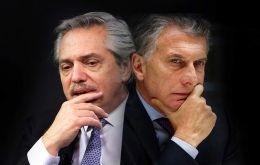
Argentina’s election primary on Sunday will determine President Mauricio Macri’s chances of winning a second term in October, with the country’s embattled peso currency expected to take a fresh beating next week if the business-friendly does not accomplish as expected.
-
Tuesday, May 7th 2019 - 09:56 UTC
Macri hopes to strike a political understanding with arch rival Cristina Fernandez
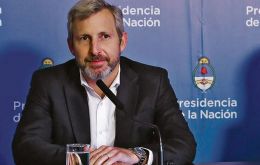
Argentina's president Mauricio Macri is looking to strike an accord with political rivals, including nemesis Cristina Fernandez de Kirchner, in a bid to calm volatile markets ahead of presidential elections towards the end of the year.
-
Friday, February 5th 2016 - 07:35 UTC
Argentina's main opposition force will attempt unity with party elections on May 8
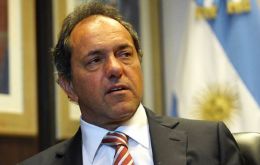
Argentina's main political force, Peronism, under the Justicialista party banner, announced that the party's elections will be held on 8 May, while the members of the electoral board set to oversee the election would be chosen during a meeting in Buenos Aires on February 24.
-
Monday, October 26th 2015 - 08:21 UTC
Argentine presidential run-off in November but with completely different scenario

Argentina's presidential election is headed for a November 22 runoff between incumbent Cristina Fernández chosen successor Daniel Scioli and conservative rival Mauricio Macri, according to results released into early Monday.
-
Tuesday, October 13th 2015 - 07:53 UTC
Scioli needs to convince some non-Peronist voters to reach the 'magic 40%'

With less than three weeks to Argentina's presidential election, the government's candidate Daniel Scioli has chances of avoiding a runoff but he still needs a couple of points, according to Fabian Perechodnik, head of pollster Poliarquía. In Argentina the winning candidate needs 45% of the votes or 40% but with a ten-point difference over the runner up.
-
Tuesday, June 23rd 2015 - 06:52 UTC
Scioli, 'head of the nation', but Cristina Fernandez 'the natural leader of the Peronist national movement'
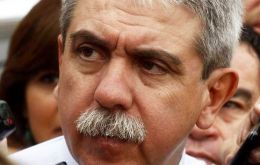
Daniel Scioli, Buenos Aires province governor and incumbent Victory Front presidential candidate, “will be the head of the nation” if he wins October elections while president Cristina Fernández will continue as “the natural leader of the Peronist national movement,” Argentine Cabinet Chief Aníbal Fernandez told reporters on Monday.
-
Tuesday, May 20th 2014 - 08:00 UTC
Metropolitan Buenos Aires majority disapproves of Cristina Fernandez, but she retains 36% support

A clear majority of Argentines, 56%, in metropolitan Buenos Aires, which is the most densely populated area of the country, disapprove of President Cristina Fernandez, according to the latest public opinion poll made public but also 36% remain faithful and approve the performance of the controversial Argentine leader.
-
Friday, April 25th 2014 - 05:51 UTC
Argentina: Macri suggests to the Broad Front 'an agreement after the presidential election'
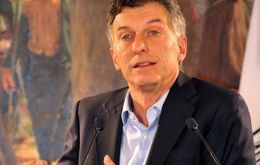
Buenos Aires City Mayor Mauricio Macri rejected on Thursday rumours suggesting a political alliance with the left leaning Broad Front UNEN, born this week and called for its leaders to seek an agreement for “after the (presidential) elections,” in 2015.
-
Saturday, August 10th 2013 - 17:06 UTC
Argentina Sunday primaries a leadership dispute inside the hegemonic Peronist party
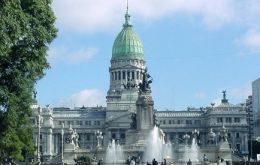
On Sunday Argentina will go to the polls to select their candidates for the country’s upcoming October legislative elections. Though it may seem a trivial democratic chapter, the open, mandatory and simultaneous primaries will in fact be the first step in an election that is likely to prove critical to Argentina and most probably a referendum on President Cristina Fernandez’ administration.
-
Monday, January 30th 2012 - 21:23 UTC
”Cristina Fernandez, the (elected) president with most power in the history of Argentina”
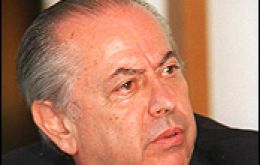
President Cristina Fernandez has more power than Juan Domingo Peron “ever had” and Peronism in Argentina is guarantee of governance, according to Carlos Corach a former Interior minister from former President Carlos Menem administration and a respected solicitor and political analyst.
